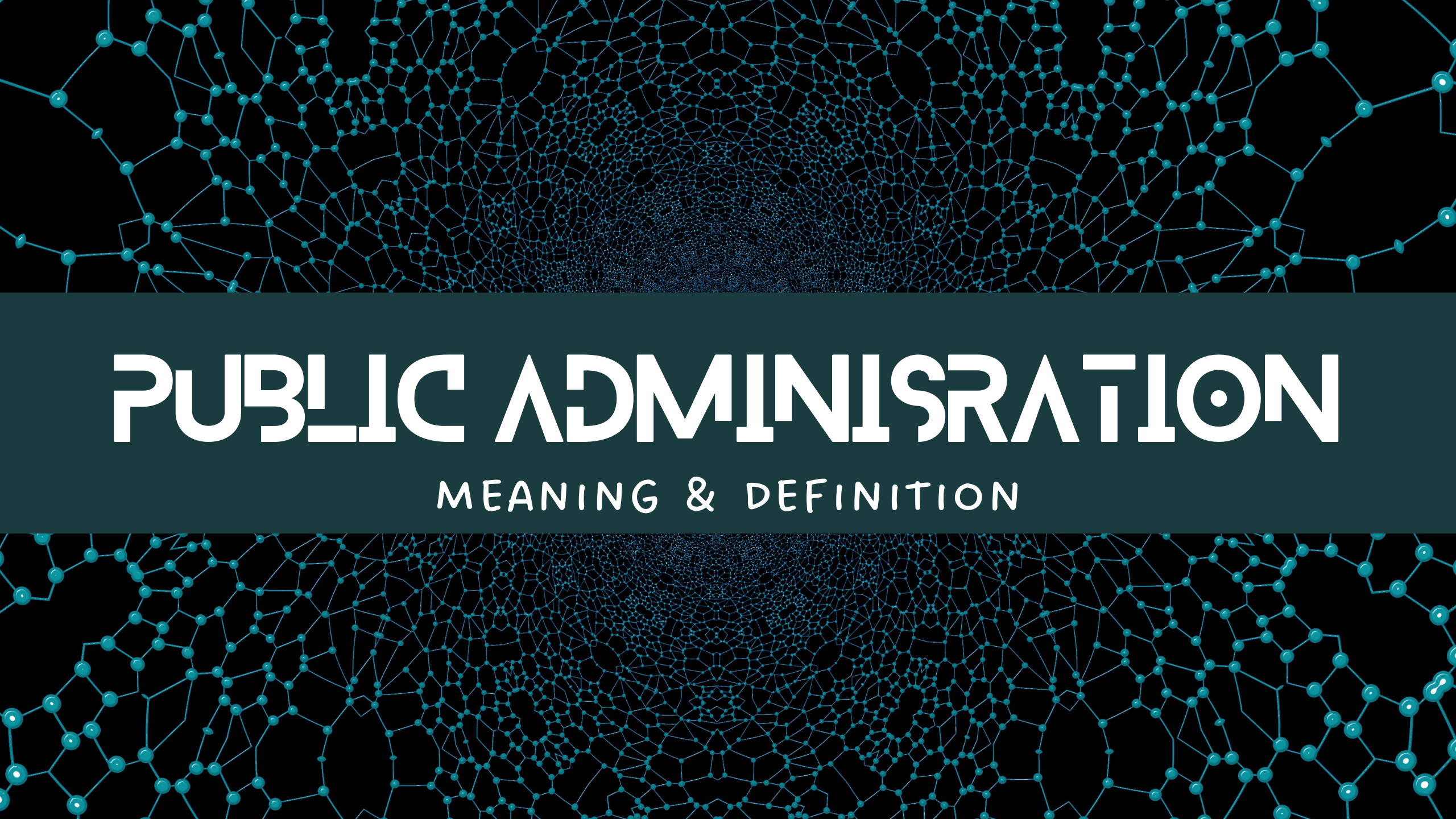Public Administration is a specialized field of Political Science that deals with the multiple tasks of the government. It is mainly an instrument for implementing government policies and bringing them into actual reality or action on the ground. In the modern welfare state, public administration is defined as the management of public or private affairs and is an active part of the government responsible for the implementation of public policy.
History of Public Administration
Public Administration as a field of systematic study is a little over a hundred years old, but as an activity it can be traced back to the earliest periods of human history when people started living in organized societies. In the earliest ancient and medieval periods, state administration was patriarchal and elitist, mainly responsible for maintaining law and order and collecting revenue. However, in the modern welfare state, the old patriarchal and hereditary state officialdom has been replaced by a public bureaucracy that recruits based on general laws and performs tasks that are genuinely public, helping to evolve the welfare state. All mass movements since the 18th century have contributed to the increasing volume, range, and scope of public administration. It is indispensable in all states, whether socialist, capitalist, or developing. Developing countries like India rely on public administration as a crucial instrument for socioeconomic transformation.
Meaning of Public Administration
The English word “administer” is derived from a combination of the Latin words “ad” and “ministare,” which mean “to serve” or “to manage.” The term “administration” refers to the management of public or private affairs. According to LD Whites, “The art of administration is the direction, coordination, and control of many persons to achieve the same purpose or objective.” Public administration is a specialized activity that deals with implementing public policy, mainly by the executive branch. It is an academic discipline that studies this implementation and prepares civil servants for working in public services through competitive exams, such as the Union Public Service Commission (UPSC) in India. Public administration also manages and improves the function of the government for a better functioning of the government as a whole.
Scholarly Definitions of Public Administration
Prominent scholars of public administration, including LD Whites, Woodrow Wilson, and Dimock, have offered their own definitions of the term. According to LD Whites, “Public administration consists of all those operations having for their purpose the fulfillment or enforcement of the public policy.” Woodrow Wilson defined it as “a detailed and systematic application of the law. Every particular application of the law is an act of administration.” Dimock stated that “Public Administration is mainly concerned with the ‘what’ and the ‘how’ of government. The ‘what’ is the subject- matter, the technical knowledge of a field that enables an administrator to perform his tasks. The ‘how’ is the techniques of management, the principles according to which co-operative programs are carried through successfully. Each is indispensable, altogether they form the synthesis called the Public Administration.”
Conclusion
In conclusion, public administration is a crucial aspect of government activity that has a long history and is essential for the successful implementation of public policy. It is an academic discipline that prepares individuals for careers in the public sector and works to improve the overall function of government. Whether in socialist, capitalist, or developing states, public administration is an indispensable tool for achieving the goals of political decision-makers and advancing the common good.

